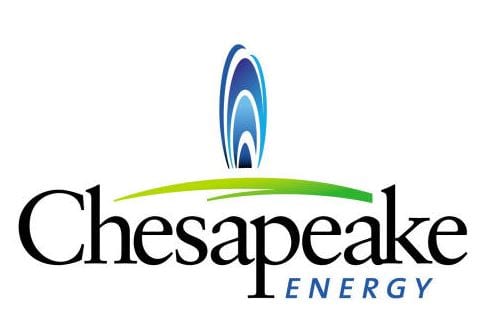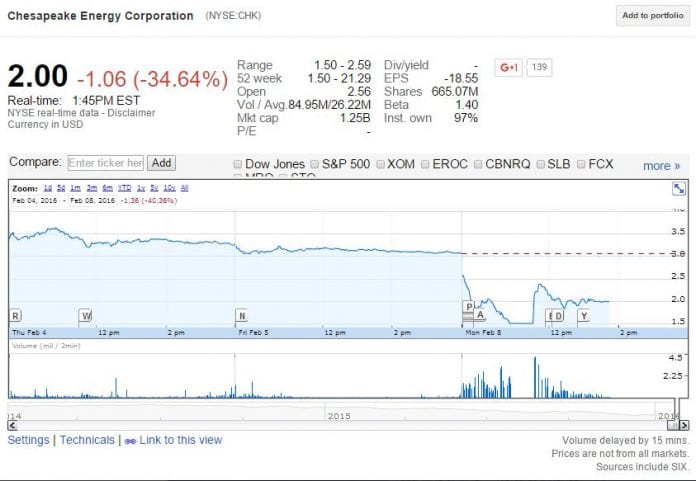The shares of Chesapeake Energy Corporation (NYSE: CHK) are plunging after announcing that it has no plans to pursue bankruptcy. The second largest producer of natural gas and 12th largest producer of oil and natural liquids in the United States added that it is aggressively seeking strategies to maximize value for all shareholders.
The stock price of Chesapeake Energy was down nearly 35% to $2.00 per share at the time of this writing, around 1:45 in the afternoon in New York. In fact, the stock declined to as low as $1.50 per share today. The announcement almost wiped out the energy company’s market value.
Chesapeake seeking to strengthen its balance sheet further
According to Chesapeake Energy, since 2010, Kirkland & Ellis LLP serves as one of its counsels and it continues to advise the company while seeking to strengthen its balance sheet further after its recent debt exchange.
The energy company’s debt is eight times more than its market value, and has been implementing various measures to slow down the rate of its cash burn. Chesapeake Energy has been suspending drilling projects, cutting jobs and closing offices.
Chesapeake Energy is producing more gas than any driller in the country other than Exxon Mobil Corporation (NYSE:XOM). The company has $1.3 billion in debt maturing by the end of 2017.
Chesapeake estimate cash shortfall
Analysts estimated that the company will be short of cash by more than $1 billion over the next two years.
Chesapeake Energy has been impacted by the decline in the price of gas, down 38% last year. The average price of gas was around $2.56 per million British thermal units last year. Gas accounts approximately 80% of the company’s production.
The energy company is scheduled to disclose its fourth-quarter and full-year financial results on February 24.
It is expected to report its second consecutive annual loss this year as the company continues to struggle due to the oversupply of North American gas that weighs on prices and wipes out cash flows, which the company needs to pay its debts, according to Bloomberg.
Last month, the Standard & Poor’s lowered the company’s credit rating to CCC+ with a negative outlook based on assumptions that the price of oil and gas will remain weak. The S&P also stated that the company’s debt leverage is unsustainable.










